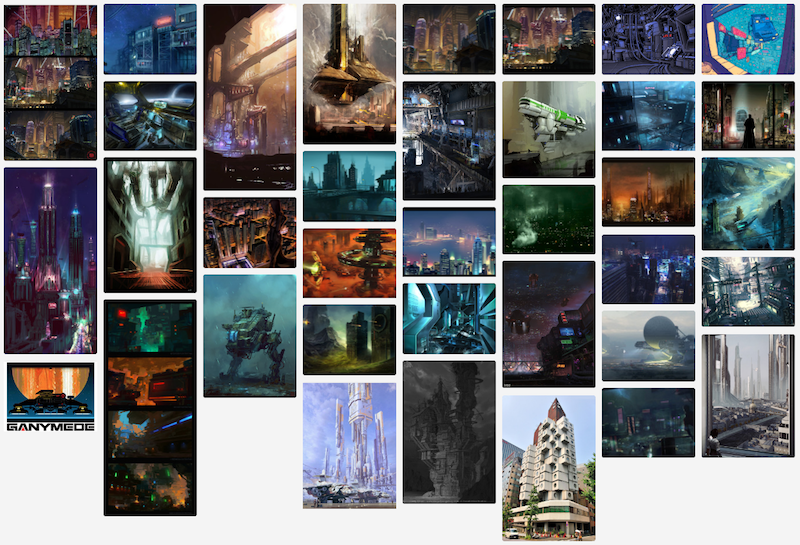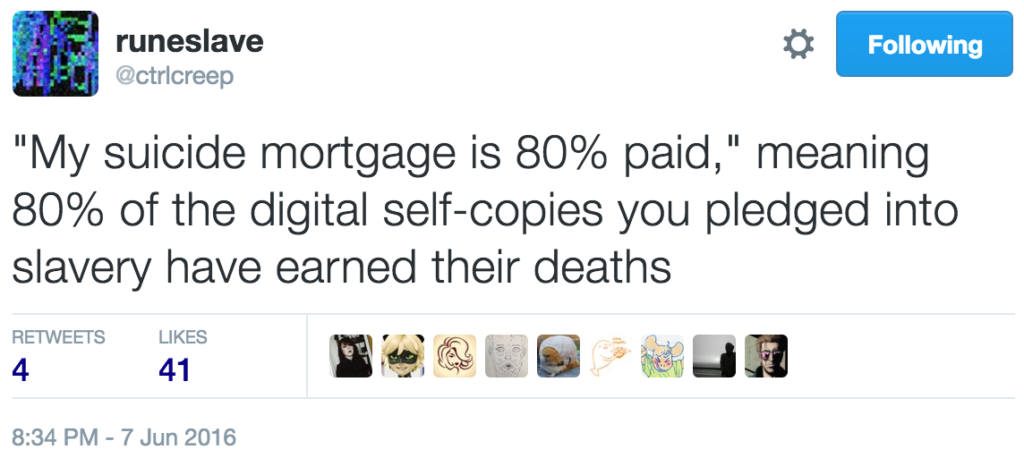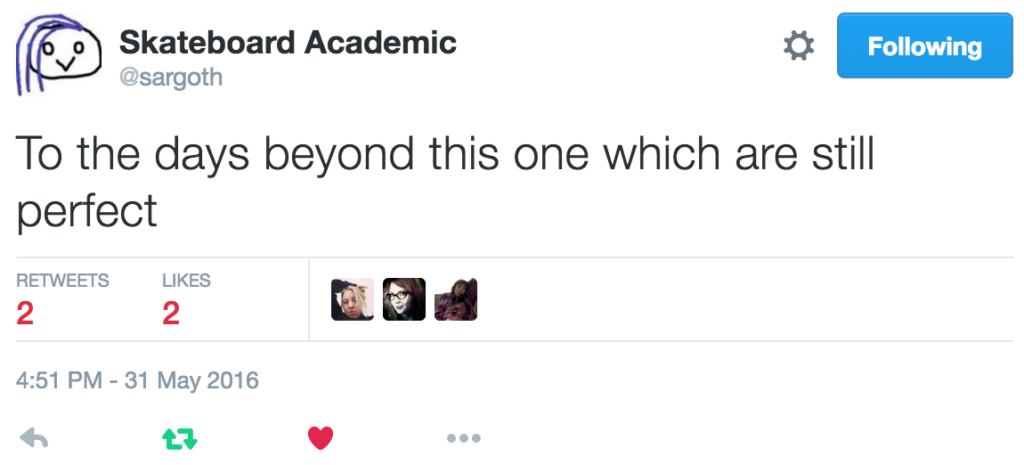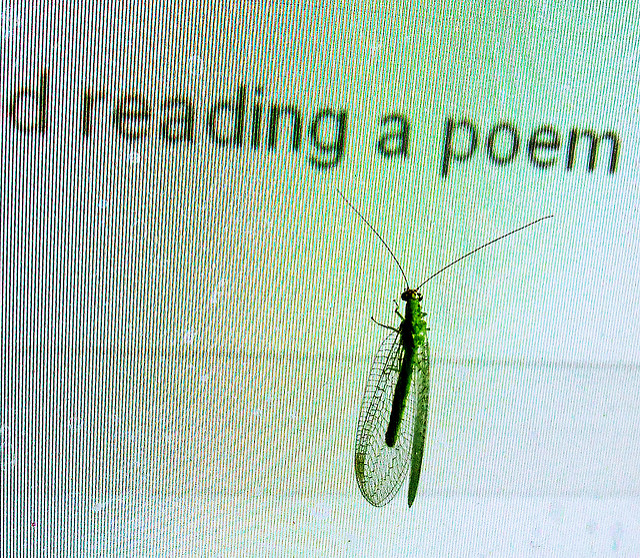I interviewed the mysterious curator behind Civilization Fiction via Tumblr chat (that was a new one). Civilization Fiction is a collection of fascinating images of futuristic cityscapes. The blog’s sidebar admonishes, “The trick is not to mind that we’re all just still-warm worm food.” (Luckily that’s never bothered me.)

From the archive grid.
Here’s our Q&A, lightly edited and condensed for readability.
Exolymph: Is this an aesthetic you’ve always been interested in?
Civilization Fiction: I’ve been collecting photos and concept art of skylines and futuristic cities for five years now. When I discovered Tumblr it was a great source of pictures for me, and it was the right platform to share my collection as well. What I’m looking for is the mood and feeling of being slightly lost or lonely in the setting of a huge metropolis.
Exolymph: Your sidebar says, “The trick is not to mind that we’re all just still-warm worm food. Bring back optimistic sci-fi.” Do you view the images you collect as optimistic? What about the economic trend they represent?
Civilization Fiction: They are somewhat optimistic because they show progress, especially in technological and economic regards. I’m not much of a tech person, but I’m interested in new technologies, especially in terms of how people use them. That’s also why I called the blog Civilization Fiction — it’s stressing the life with new technologies.

Artwork by novaillusion, recently posted by Civilization Fiction.
Civilization Fiction (continued): The “we’re all just still-warm worm food” line is my way of accepting death as an inevitable consequence of life. It is optimistic in the sense that we’re supposed to live our lives as compassionately as we can, because it’s the only chance we have to be good and nice company for each other. It doesn’t really matter if a Star Trek-like utopia is scientifically plausible when it manages to inspire people to hope and work for a better world.
Exolymph: Do you feel optimistic about the state of the world in general?
Civilization Fiction: I’m afraid not. However, I try to be optimistic and still hope for a brighter future. After all, we only have this world and a single attempt at life, so it would be a shame to waste it and not try to make it a better place.
Exolymph: Can you elaborate on your worries?
Civilization Fiction: While I see a lot of potential in many technologies, I see them also wasted. The internet is a prime example: it can be (and is) used for worldwide communication and education, but as far as I’m aware, most of the data sent is selfies, pornography, and marketing campaigns.
And I expect that when AI technologies are achieved, they won’t first be applied to medical problems, solving world hunger or anything like that, but rather to make a profit at the stock market. That’s just my take on human nature and I really hope the future proves me wrong.
Exolymph: Me too… But I have similar worries.
If you frequent Tumblr, I recommend following Civilization Fiction, and the collection of images is worth perusing regardless.












